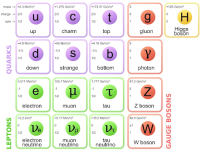Among atheists, skeptics, humanists, freethinkers, etc, the term "naturalism" , or more formally "metaphysical naturalism" or "philosophical naturalism", is quite a popular term. For example, physicist Sean Carroll wrote:
The Internet Infidels, which I think originally spawned this forum, or at least one of its predecessors, wrote:
The main problem with the term "naturalism" as I see it is that there is no coherent definition of "supernatural", and hence no coherent definition of "natural", at least as far as I can tell.
Imagine if we lived in the LOTR universe, for example. It seems the only criterion for "supernatural" is what doesn't exist in our universe.
I think a more sensible approach is to simply focus on what exists, and what doesn't exist, as far as we can tell, rather than to try to categorize things into categories that have no clear definition and no obvious utility.
I am an atheist, although I prefer "naturalist" because it seems like a more constructive and forward-looking term.
The Internet Infidels, which I think originally spawned this forum, or at least one of its predecessors, wrote:
Invariably people want to know why we define ourselves in terms of naturalism instead of better known terms like atheism or nontheism. Simply put, naturalism represents a broader philosophical position about what sorts of things do and do not exist. Atheism, the position that there (probably) are no gods, is simply an incidental consequence of naturalism. As such, atheism is merely a position on the existence of one kind of supernatural being; unlike naturalism, atheism does not offer a complete worldview. In a society dominated by theism, the view that there is a single personal god outside of the natural order, it is not surprising that nonbelief is most widely known in terms of the negation (or at least absence) of theism. But since it is merely through historical accident that Western theism has become a particularly tenacious belief, the popularity of that belief is no reason to define oneself in contrast to it. Had some other form of supernaturalism come to dominate Western tradition, we would be no less determined to contest it.
Consequently, we define ourselves in terms of a thesis about the overall nature of reality, and thus in opposition to all positions incompatible with that thesis. We take to be false all claims about the existence and features of an otherworldly, transcendental domain "above" or "beyond" the natural world, but nevertheless somehow able to interact with it. Insofar as a religion is a belief system that affirms the existence of the supernatural, naturalism entails that all religions are equally false. Thus the Secular Web aims not only to critique the truth of particular religious claims, but the truth of any and all religious claims. Animism, the belief that even inanimate objects like rocks and rivers are interpenetrated by nature spirits active in human affairs, is in principle no less fair game for skeptical critique than the doctrines of major world religions.
The main problem with the term "naturalism" as I see it is that there is no coherent definition of "supernatural", and hence no coherent definition of "natural", at least as far as I can tell.
Imagine if we lived in the LOTR universe, for example. It seems the only criterion for "supernatural" is what doesn't exist in our universe.
I think a more sensible approach is to simply focus on what exists, and what doesn't exist, as far as we can tell, rather than to try to categorize things into categories that have no clear definition and no obvious utility.

